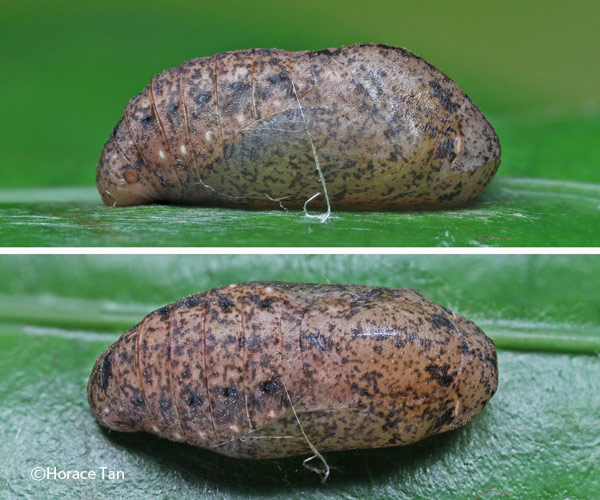Surendra vivarna amisena
Acacia Blue
| Family: | Lycaenidae |
| Subfamily: | Lycaeninae |
| Genus | Surendra |
| Species: | vivarna |
| Subspecies: | amisena |
| Common Name: | Acacia Blue |
| Life History: | complete |
| Extant in countries: | •Singapore |
| Hostplants: |
Description
The male of the Acacia Blue is a deep shining purplish blue above, with a black apical border on the forewing and a broad black border on the hindwings. The female is steely blue with narrow diffuse black borders on both wings. The underside is hair brown with small and obscure spots and an irregular dark post-discal line on both wings. It has two tails, the one at vein 2 being the longer.
Habitat & Habits
The butterfly is moderately rare in Singapore, occurring only in the vicinity of where its host plant, Albizia falcata, is found. The caterpillar is well camouflaged usually hiding along the young shoots of the food plant where it is attended by the ant Anoplolepis longipes. This symbiotic existence is typical of many of the Lycaenidae, where the ants obtain "honey-dew" secretions from the caterpillar, in return for protection from predators.
Other Observations
To be detailed.
Early Stages
Refer to the ButterflyCircle blog article - The life history of the Acacia Blue.
Further Reading
To be detailed.

 Bobby Mun.jpg)
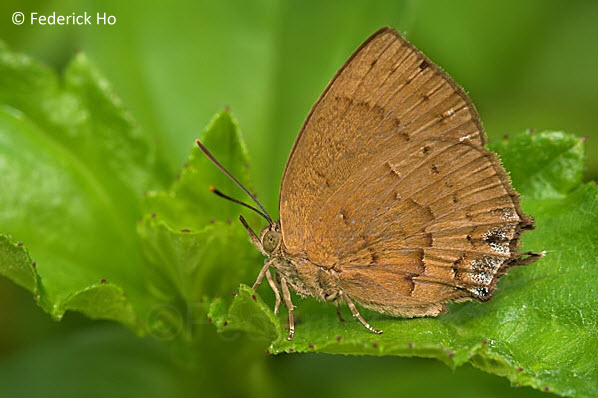
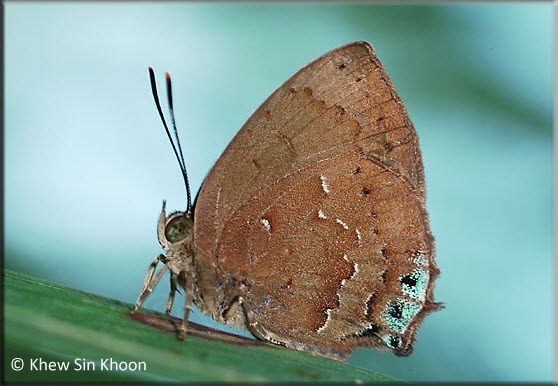
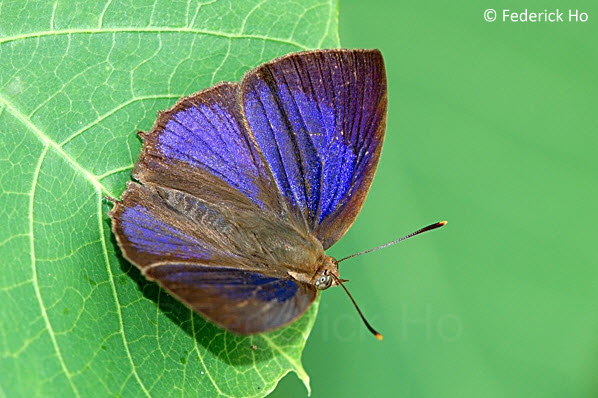
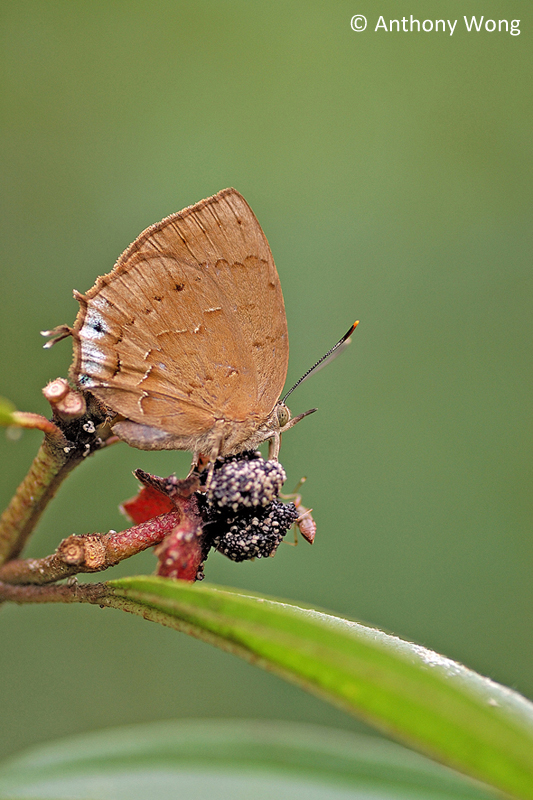
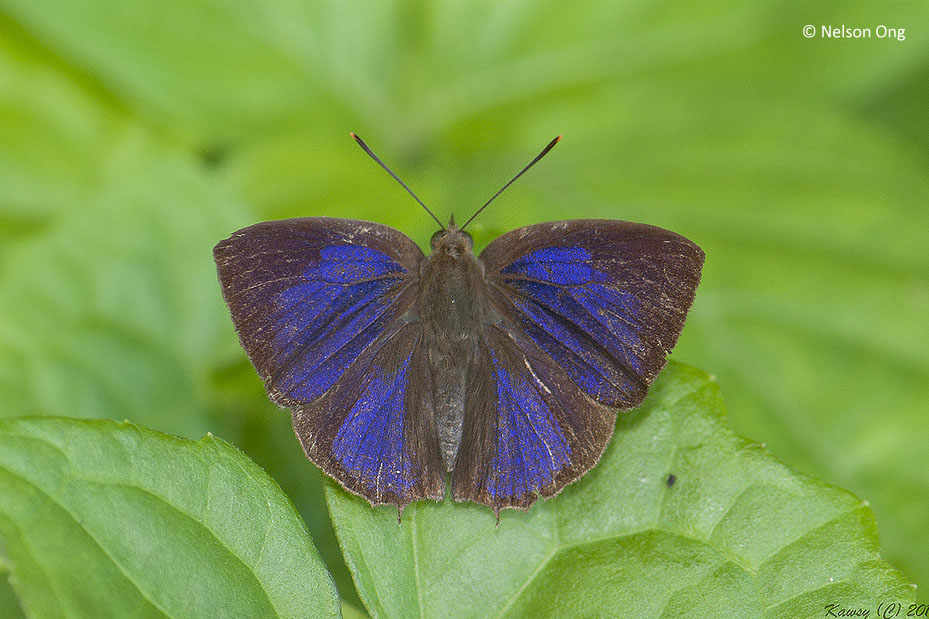
 Bobby Mun.jpg)






 - Khew SK.jpg)
